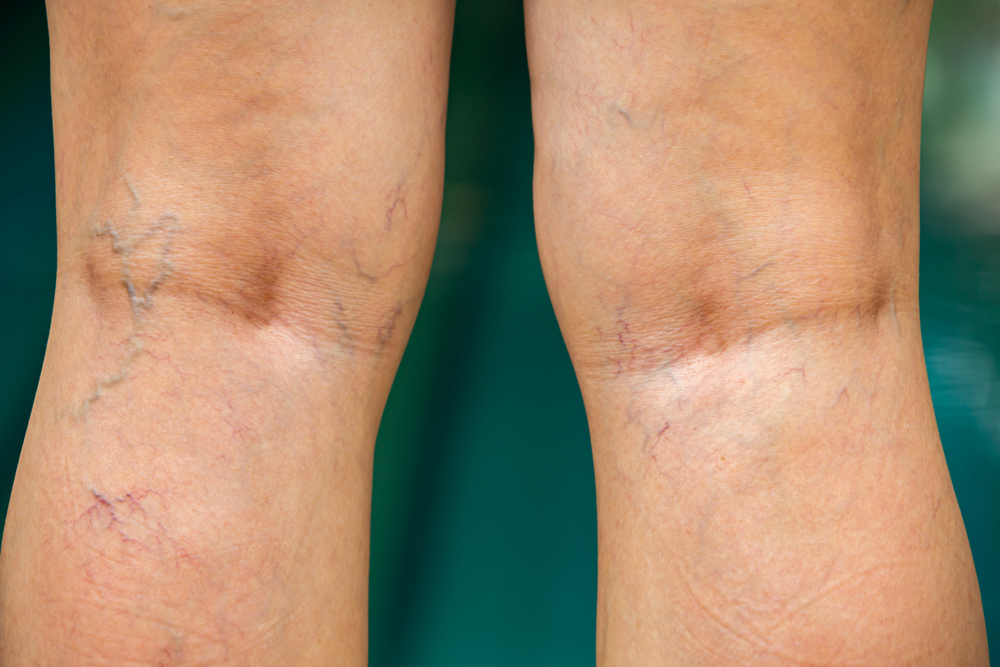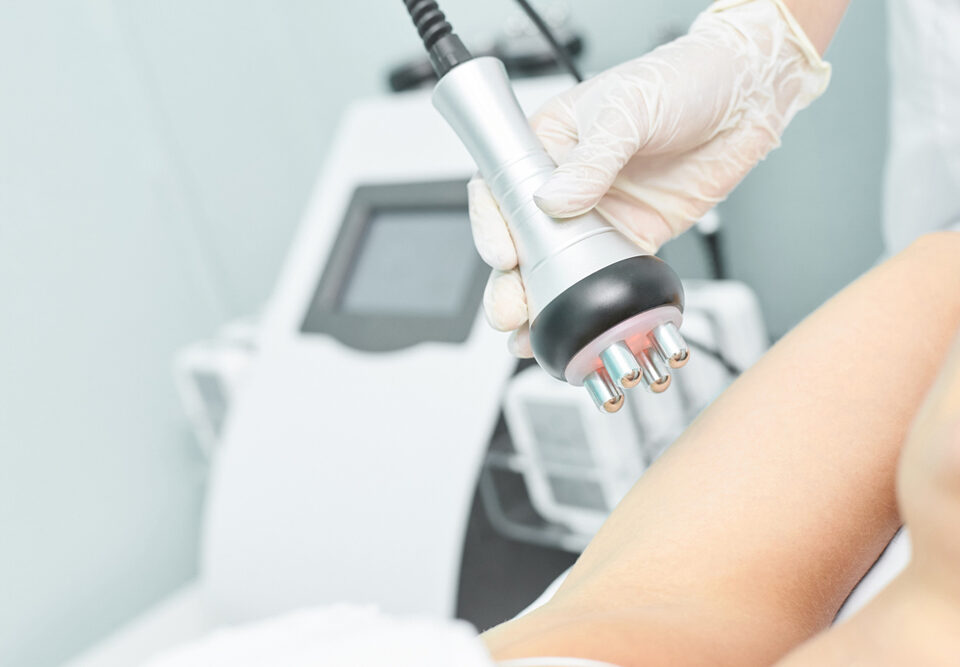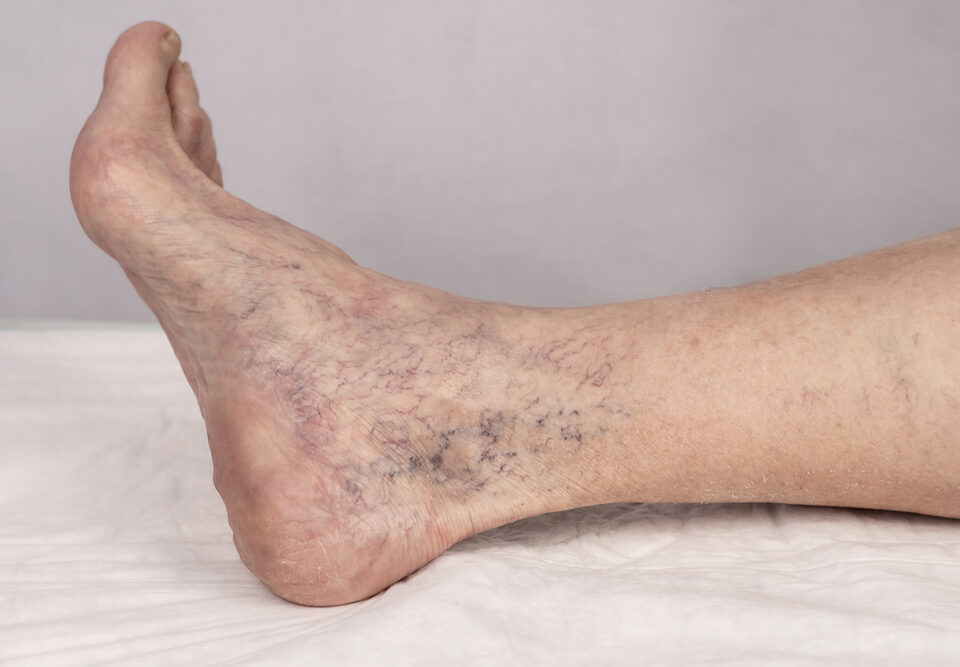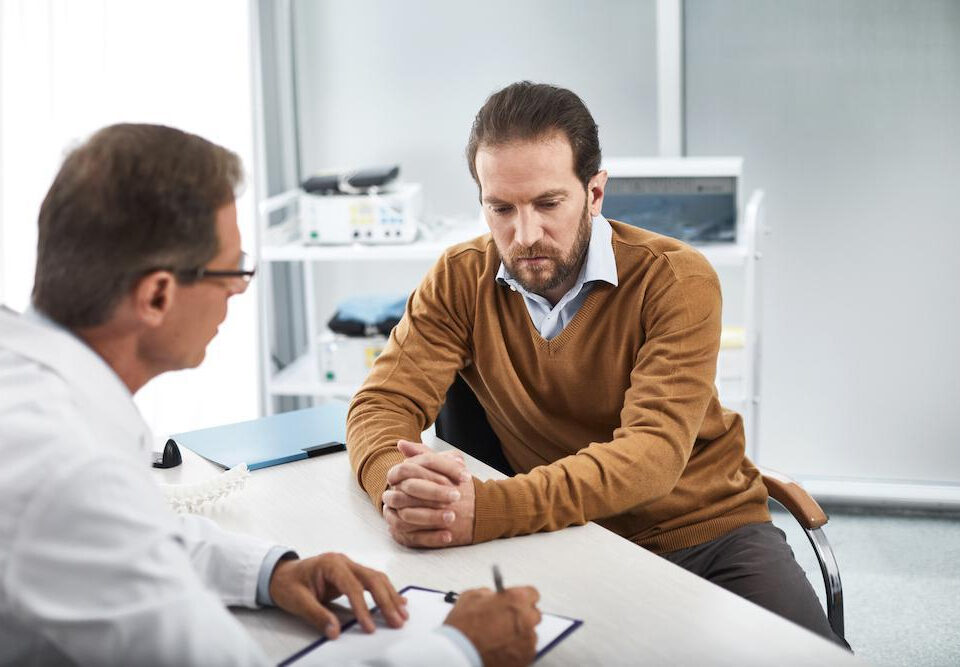Varicose veins are veins that have become enlarged and/or visible. While any vein in the body can become, the most noticeable ones happen in the legs and feet because veins in that part of the body are under increased pressure by pushing blood back to the heart, going against the force of gravity. As we age, the increased pressure and force weakens the valves within the vein, which causes blood to collect. When the blood collects, the veins bulge out and become visible through the skin. That is how varicose veins form. Here is more about varicose veins and what you can do if you have them.
What are some risk factors for varicose veins?
While anyone can get varicose veins, certain factors that may put you at a higher risk of developing them. However, genetics is the number one risk factor for developing varicose veins. But before you blame your mom or dad being on the heavy side, consider the following: some people inherit venous problems they may not be aware of. This includes having too few valves or valves that do not function as they should. Still, others may be born with abnormalities of the vein wall that could result in a predisposition for the valves to become weak and faulty. When varicose veins occur in young people who otherwise have no risk factors, chances are genetics are to blame.
Here are some more factors that may put you at a higher risk of developing varicose veins.
- Gender: Female hormones tend to relax vein walls; therefore, women are more likely than men to develop varicose veins. Hormonal changes during pregnancy, premenstruation, and menopause are all contributing factors.
- Age: Since aging causes wear and tear on the valves in the veins that help regulate blood flow, the risk of having varicose veins increases as we get older,
- Obesity: The heavier a person is, the more pressure there is on the veins.
- Sitting or standing for extended periods of time: Blood doesn’t flow as well when you’re in the same position for long periods of time.
- Underlying circulatory issues: In more serious cases, varicose veins can be caused by chronic venous insufficiency, a circulatory problem in which veins are unable to pump enough blood back to the heart. Whereas simple varicose veins affect superficial veins and are a result of lifestyle factors, chronic venous insufficiency affects deep and perforating veins.
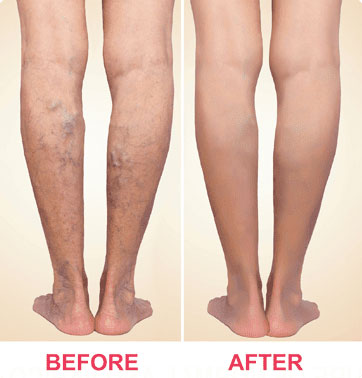
Varicose Vein Treatment Options
There are numerous conservative options available for treating varicose veins, such as over-the-counter pain medication, homeopathic remedies, compression stockings, and lifestyle changes to include exercise and weight loss. If conservative treatments fail, minimally invasive interventional treatments can be used to treat the vein directly, aiming to eliminate the cause of the varicose veins. Some of these treatments include:
- Endovenous thermal ablation is a procedure in which a thin, flexible tube (catheter) is inserted into the affected vein. As the catheter is removed, energy (heat) is used to seal the vein shut.
- Ambulatory phlebectomy is a minimally-invasive surgical procedure that removes the damaged portion of the vein through several tiny incisions. This treatment does not require stitches and can be performed under local anesthesia in the doctor’s office.
- Sclerotherapy involves injecting a specialized chemical solution into the affected vein. Several sessions, spaced apart by 4-6 weeks, may be needed to treat larger or multiple veins.
- Non-thermal vein ablations are newer techniques that use a glue or medication to seal the damaged vein, rather than heat.
What should I do if I see varicose veins?
It is best to visit your doctor at the first sight of varicose veins. Using diagnostic ultrasound imaging, a vein specialist can see how the veins in your legs are functioning. The imaging can point to weakened areas that are causing blood to pool. Once you’ve identified the problem areas, you and your doctor can discuss a treatment plan that best suits your needs.
At Premier Vein and Vascular, we specialize in vein treatment. We want to help you look and feel your absolute best. Please call us to schedule your FREE CONSULTATION at 1-888-VEIN-CARE (834-6227).


